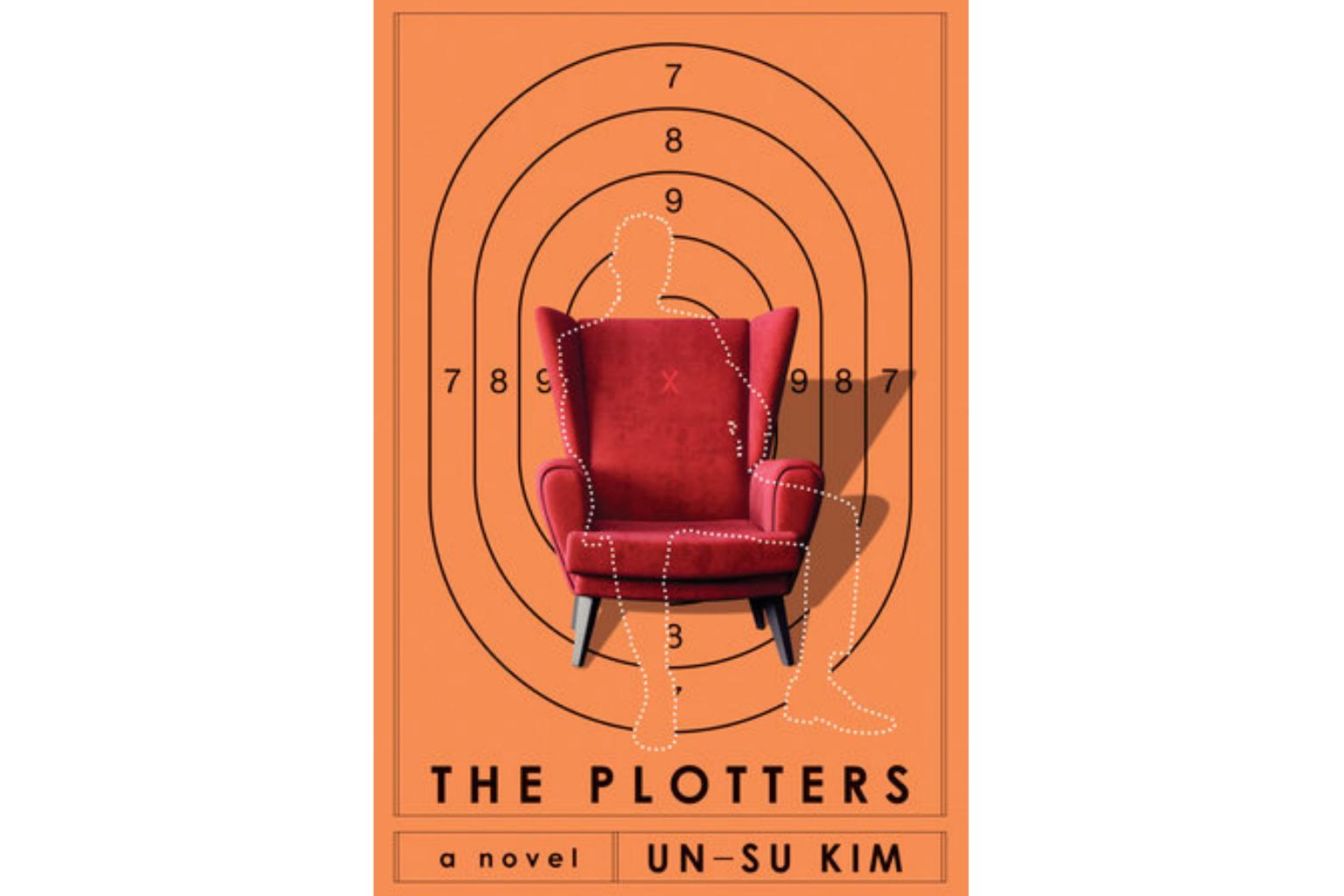Book review: Kim Un-su's The Plotters is a riveting, cinematic thriller about assassins in a library
Sign up now: Get ST's newsletters delivered to your inbox

The Plotters by South Korean writer Kim Un-su is so inherently cinematic that it is practically a movie beaming off the pages.
PHOTO: DOUBLEDAY
Review
FICTION
THE PLOTTERS
By Kim Un-su
Translated by Sora Kim-Russell
Doubleday/ Paperback/ 292 pages/ $27.82/ Books Kinokuniya
4 stars
Screen adaptations of books are a dime a dozen these days. A hot title comes on the market and you can expect to see it on the screen in a year or so. But once in a while, along comes a book so inherently cinematic that it is practically a movie beaming off the pages.
The Plotters by South Korean writer Kim Un-su is one such book. It is poised somewhere between the viscerally pulpy John Wick film franchise and Ernest Hemingway's fatalistic 1927 short story The Killers, but with an entirely Korean sensibility. It is a superb example of its genre, insofar as assassin thrillers constitute a genre.
Reseng, 32, was found in a dustbin as a baby by Old Raccoon, the ruthless head of the Doghouse Library, a powerful cabal of "assassins, hired guns and bounty hunters". It is also an actual library of 200,000 books, which only he and Reseng read.
Old Raccoon has raised Reseng to be an ace assassin. It is all he has ever known - his one attempt to settle down as an ordinary blue-collar worker failed to pan out. Now, in between killing people and other people trying to kill him, he holes up at home drinking beer with his cats, Desk and Lampshade.
But even the shadowy criminal underworld of Seoul is susceptible to market disruption. A veteran assassin goes rogue and starts taking out fellow killers instead of his assigned target. Old Raccoon is threatened by a sleek, corporate rival firm run by his former protege. Behind all this lurk the "plotters", the mysterious masterminds who pull the strings behind every assassination.
The Plotters is riveting, in part due to Sora Kim-Russell's sinewy translation, which renders scenes so vividly that the knife fights seem to jump off the page.
It is full of astonishingly detailed assassination techniques - imagine the author's Internet search history - from the benefits of barbituric acid over cyanide as a lethal poison to how a good assassin would never leave a scent behind.
Deadpan humour enlivens this universe of contract killers and conspirators. A battered wife gets cold feet over ordering a hit on her husband, but will reconsider if she gets a discount. The owner of Reseng's regular crematorium complains about how expensive it is to send his daughter to university: "I'll need to burn five more bodies to afford her tuition and rent."
The novel has a slyly literary bent, not least because the action is run out of a library. Characters reference the likes of Homer and Romance Of The Three Kingdoms.It even tilts at the metafictional prospect of authorial determinism - after all, who should be the ultimate plotter but the author himself? - although these are cuts that do not really draw blood. In the end, nothing too cerebral gets in the way of the action.
Screen adaptations of The Plotters are in the pipeline, which seems like a natural progression. Still, it is a beautiful thing to see how well it worked in words first.
If you like this, read: The Good Son by Jeong You-Jeong, translated by Kim Chi-young (Abacus, 2018, $17.95, Books Kinokuniya), a chilling Korean psychological thriller in which a young man wakes up covered in blood with little memory of the last 12 hours, then finds his mother lying at the foot of the stairs with her throat slit.


